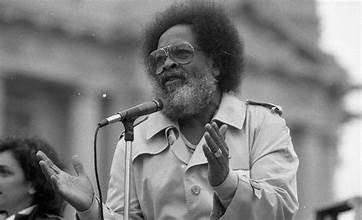Atlanta GA,
The American Cancer Society is urging the Black community to talk to a doctor about screening this Prostate Cancer Awareness Month
Prostate cancer is the most common type of cancer diagnosed among people born with a prostate in the United States. According to the American Cancer Society’s 2023 Cancer Facts and Figures, prostate cancer mortality has declined by 50% since 1991, however the decline has slowed likely due to the increasing number of advanced stage prostate cancer diagnoses. Black men are 70% more likely to be diagnosed with prostate cancer than White men, and over twice as likely to die from the disease. Prostate Cancer in the United States
This year, more than 288,300 people in the U.S. will receive a prostate cancer diagnosis. Black men are more likely to be diagnosed in an advanced stage.
There’s no sure way to prevent prostate cancer. Age, race, ethnicity, geography, and genes are all factors that might affect a person’s risk. A family history of prostate cancer also increases risk, especially if the family member was under 50 years old when diagnosed. Although the effects of body weight, physical activity, and diet on prostate cancer risk aren’t clear, there are things you can do that might help lower your risk, such as being physically active and following a healthy diet. Screening Saves Lives
The prostate is a gland that makes some of the fluid that is part of semen. Prostate cancer begins when cells in the prostate gland start to grow out of control. It usually has no symptoms until the disease is advanced. However, prostate cancer can often be found early through screening because it is usually slow growing. When detected in early stages, the five-year relative survival rate across all races approaches 100%.
The American Cancer Society recommends anyone who has a prostate talk to a healthcare provider to make an informed decision about prostate cancer screening. Black and African American men should talk to their doctor at age 45.
“Detecting prostate cancer early can lead to more effective treatment and improved outcomes,” said Dr. Bill Dahut, chief scientific officer at the American Cancer Society. “Along with encouraging everyone to talk with their health care team about being screened, we’re being intentional about facilitating access to quality prostate cancer screening and care. If you know someone who has a prostate, share that screening is the best way to increase the chances of detecting prostate cancer early when outcomes are best.”
The American Cancer Society’s new campaign “I love you, get screened” reinforces that message and reminds everyone – not just men – about the real reason cancer screening is important. It saves lives. Surviving a Cancer Diagnosis
Once diagnosed, prostate cancer can have a tremendous physical, emotional, and financial impact. “As more people are diagnosed with prostate cancer, the American Cancer Society is continuing to focus on health equity by providing needed support to people living with cancer,” said Tawana Thomas Johnson, senior vice president and chief diversity officer at the American Cancer Society. “Our patient support programs are available to reduce barriers for anyone going through cancer treatment.” People with cancer can find support in the following areas:
• Community Connection
– The American Cancer Society’s Cancer Survivors
Network is a peer support
community for cancer patients,
survivors, caregivers, families,
and friends. It provides a free,
online safe place for anyone
impacted by cancer to share interests and experiences.
• Access to Treatment – Maintaining a consistent treatment
schedule is important in effectively managing prostate
cancer, but it is not easy for
everyone to get to treatment
appointments due to cost,
distance or ability. The American Cancer Society’s Road to
Recovery program and Hope
Lodge communities ensures
anyone who needs a ride or a
place to stay during treatment
has one free of charge.
• Education – The American
Cancer Society’s survivorship
guidelines outline how to live
well during and after treatment.











